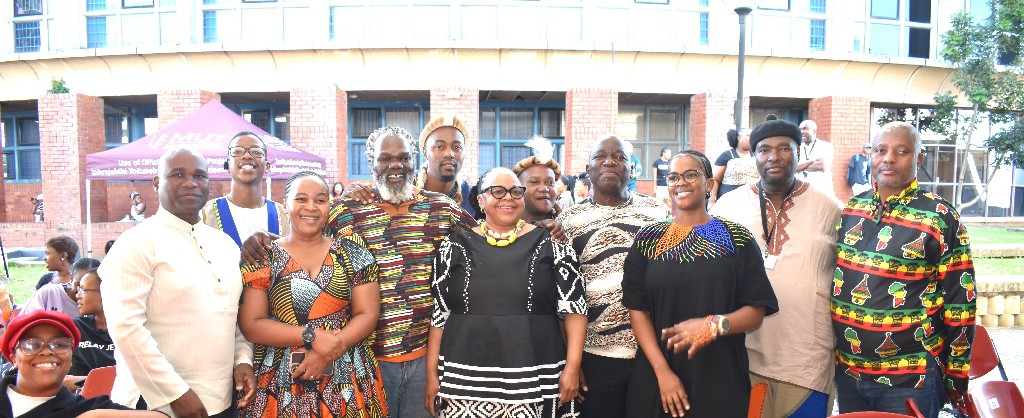
While the entire African continent celebrated Africa Day on 25 May 2025, the University chose to commemorate this important day over two days. These are 20 and 30 May 2025. On 29 May 2025, the University staff and students gathered at the Student Centre, where they had the opportunity to learn some essential lessons about Africa.
Dr Buyi Makhanya, Deputy Director at the Teaching and Learning Centre’s ALLU, said that 25 May was declared Africa Day in 1963 by the then Organisation of African Unity (OAU), now the African Union. This is the day when all Africans must reflect on what it is like to be African and where Africa is coming from. This reflection involves the recent history of Africa, which is littered with colonialism, and how African countries conquered this scourge. The day also requires Africans to continue questioning what they have achieved and whether their plans for total economic, political, and cultural emancipation are still in place.
However, the highlight of the day was a powerful message delivered by the guest speaker, Mbuso Khoza. Khoza, a poet, songwriter, vocalist, oral historian, and IsiZulu culture analyst par excellence went to town, telling the students and staff what it is like to be an African. His presentation was interspersed with African melodies that he sang, much to the excitement of the students and staff, some of whom rushed out of their offices when they heard Khoza singing.
Khoza went further back and talked about what Africa was like. He narrated the story of a war between the ancient city of Carthage in eastern Africa and Rome. This war was divided into three phases, collectively known as the Punic Wars. Khoza continued and told of how Africa was colonised by foreigners and the hardships that Africans endured during this time. What was most important, he said, was that an Africans lost their culture and identity during this time. It was at this juncture in his speech that he zoomed in on the recent history of the Zulu people, saying that they had lost their culture; their behaviour was so wayward, he said. For Khoza, the turning point in Zulu history was in 1879, when the Zulu people embarked on a new way of life. This year is known as a time when the Zulu people fought some of the crucial wars with the white settlers who were hellbent on taking their land by force. After losing the wars to both the British and Boer colonialists, the Zulu people embraced the Western way of life. This meant losing what was most important to them – ubuntu, which required that they care for one another. Now, their focus was on serving their white masters and turning against each other in various ways. Khoza said the Zulu people were then scamming each other.
Khoza said celebrating Africa Day meant Africans needed to seek the correct knowledge about themselves and embrace what used to be central in their lives – spirituality, caring for one another, and questioning what they were doing, all in search of what would bring back what is meaningful to them. As an illustration of the importance of what he was saying, Khoza used the surnames of some Zulu people, explaining how they originated and what they meant. His point was that every part of a Zulu person has a history, good or bad and that life for an African should involve a constant search for what is right for them. Some aspects of Zulu life that need to be addressed, according to Khoza, are the customary ways. Some of these are ilobolo, umhlonyana, umkhehlo, and ukumulisa. Most of these have to do with the growing up of both boys and girls, and how these change a young person’s life; these are rites of passage that have to be performed in the correct manner. Khoza also talked about the important trinity in Zulu person’s life – igazi, umswani and inyongo. These are the three things that a Zulu person needs to cleanse themselves.
According to Khoza, it is very important for a Zulu person, and by extension, any African, to treat life with great care, so life would treat them the same way.
On 30 May 2025, the University will collaborate with the Durban University of Technology (DUT) and other partners to celebrate the big day of any person living in Africa and people of African descent.
